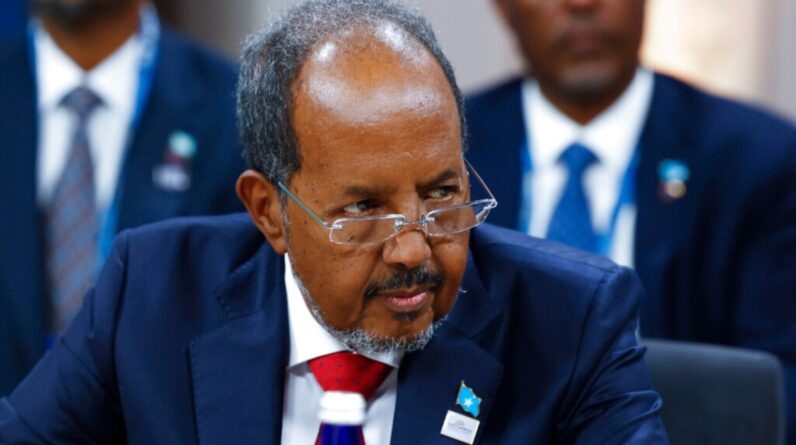
WASHINGTON –
Somalia’s political leaders have agreed to reshape the country’s political system after four days of meetings in the capital, Mogadishu.
In a statement issued early Sunday, the National Consultative Council, which includes federal leaders including President Hassan Sheikh Mohamud, Prime Minister Hamza Abdi Barre and Deputy Prime Minister Salah Ahmed Jama, as well as four regional leaders and the mayor of Mogadishu, have agreed to introduce direct elections as early as next year and unify election schedules, and approved the establishment of a presidential system for the country.
Aside from clan-based power-sharing, the leaders agreed that one-person, one-vote elections will take place every five years. A 15-member National Elections and Boundaries Committee will be formed to manage all local, regional and federal elections.
The municipal elections will be the first to take place on June 30 next year. This year, regional parliamentary and regional leadership elections will follow on November 30, according to the statement.
The leaders have agreed that there will be only two political parties competing for power in the country. The current law on political parties does not limit the number of political parties.
The agreement abolishes the presidency
Perhaps the most significant article of the agreement is the restructuring of the leadership system by abolishing the presidency.
Instead, the leaders endorsed a presidential system, with the country’s president and vice president directly elected on a single ticket. The same goes for regional presidents and their respective vice presidents.
Approval of a presidential system will require a federal constitutional amendment, as the current constitution provides for a parliamentary system in which lawmakers elect a president, who then appoints a prime minister. Critics have long argued that the parliamentary system led to endless political disputes between the president and the prime minister.
If popular elections are held across the country next year, it will end a controversial clan-based system known as “the 4.5”, which has been used to share power since 2000. This system allowed that four major clans had equal participation in parliament, while a group of smaller clans got half the quota. The last election based on the 4.5 system brought Mohamud to power in May last year.
Interior, Federal and Reconciliation Minister Ahmed Moallim Fiqi, who read the statement, hailed the agreement as “a step forward”.
“This is a historic agreement that ends the system used since 2000,” he told VOA Somali. “It gives Somalis the opportunity to have their say and entrust their vote to those who represent them at different levels of local, regional and federal governments.”
The statement did not address what happens when the current president’s term ends on May 15, 2026.
But Fiqi said that next year’s election will be considered a “mid-term” election, where those elected will hold office for two years, until 2026, when the electoral calendar will be unified both at the local level, regional and federal.
Opponents say deal is ‘unconstitutional’
The new deal was quickly criticized by some politicians who argued it would give term extensions to regional leaders whose terms currently expire in a few months.
“Tonight’s statement by the National Consultative Council is an affront to Somalia’s interim constitution and the supremacy of our national laws,” said Mursal M. Khaliif, a member of the Federal Parliament.
“Whatever you call it, this is an unconstitutional deadline extension for the federal member states and the federal government.”
The agreement was not signed by the president of the semi-autonomous region of Puntlandia, Said Abdullahi Deni. Puntland this week held local council elections in which the people voted to elect their representatives, an exercise the rest of the country is working to emulate next year if this deal is implemented.
[ad_2]
Source link





